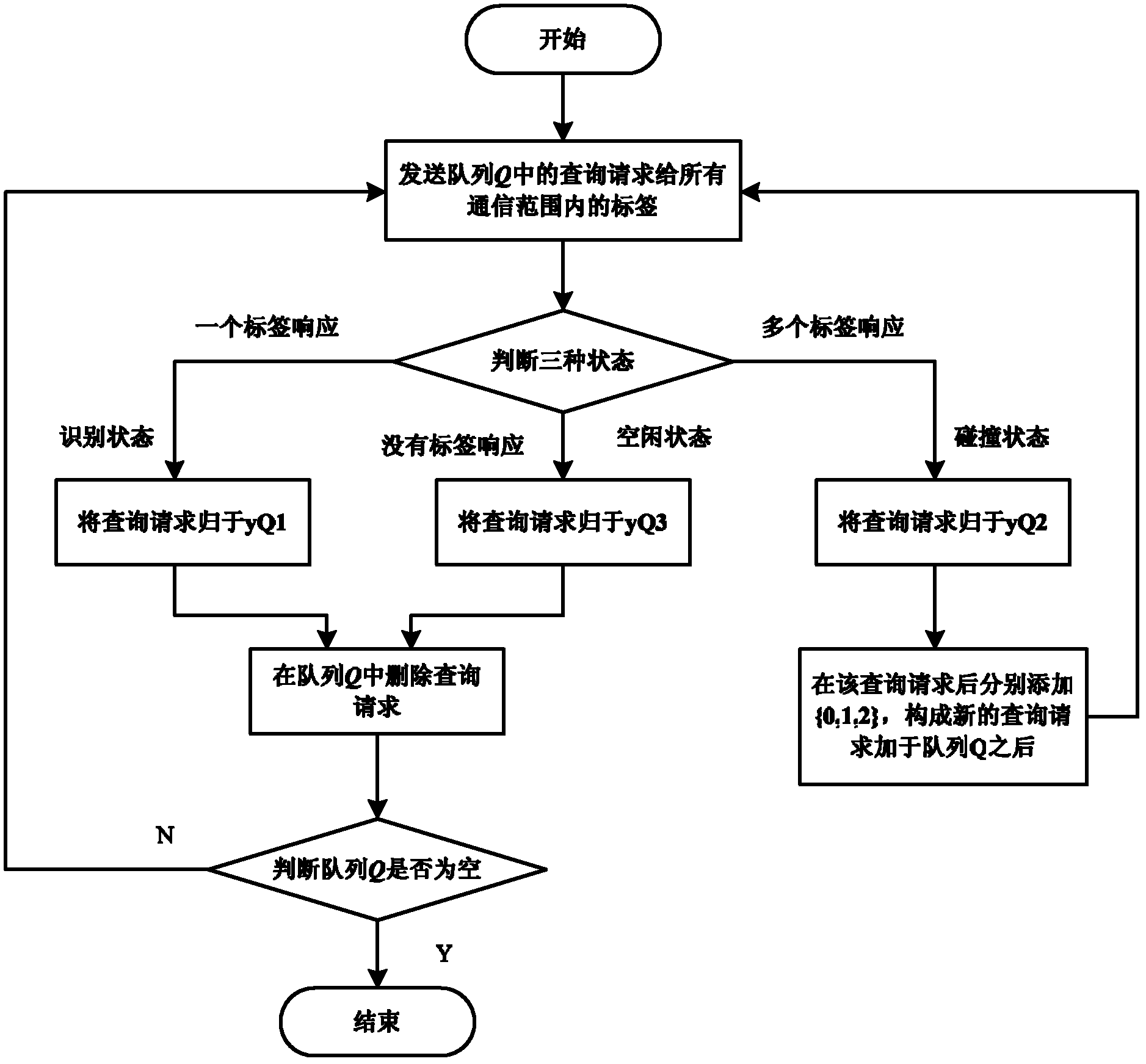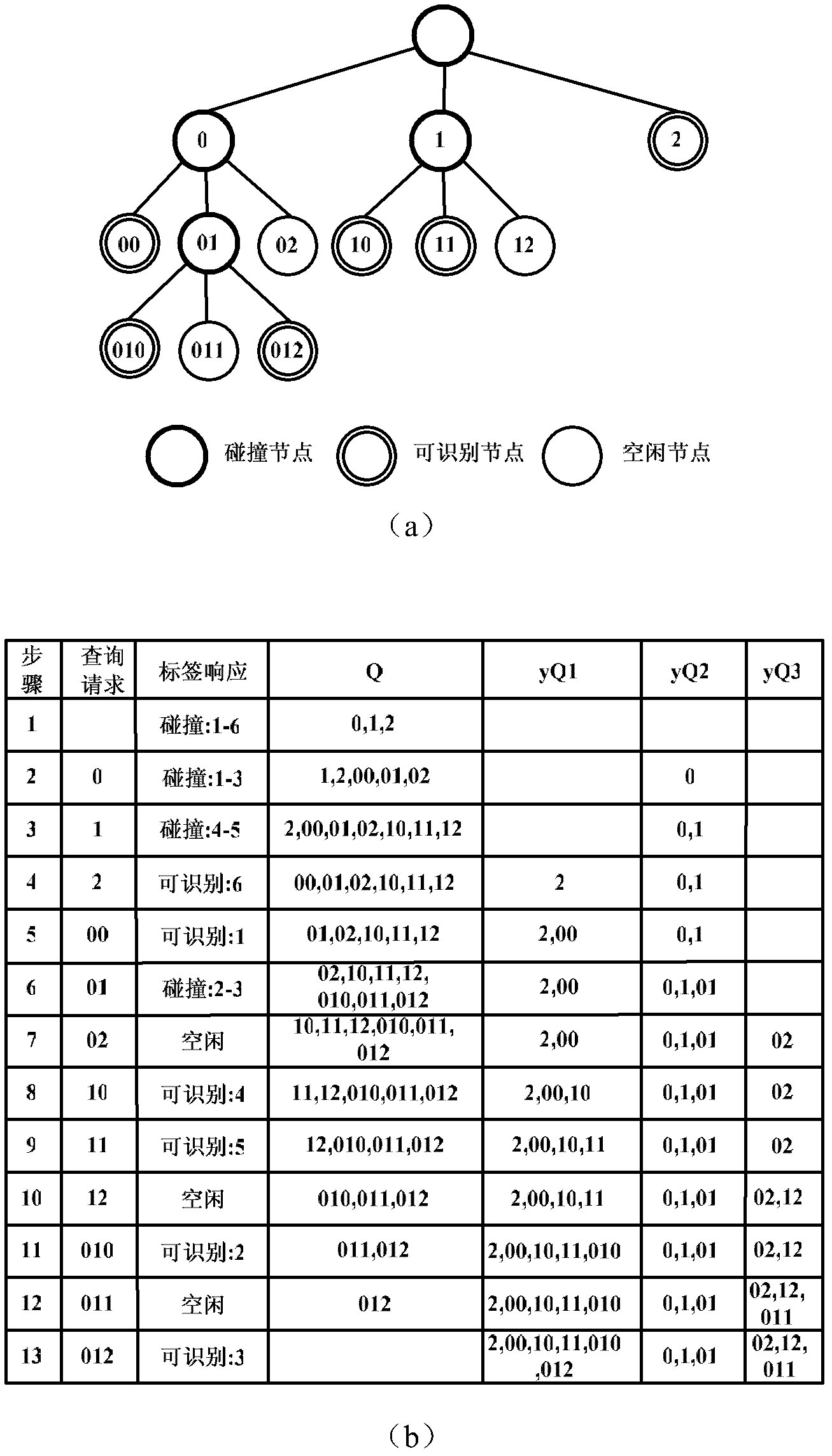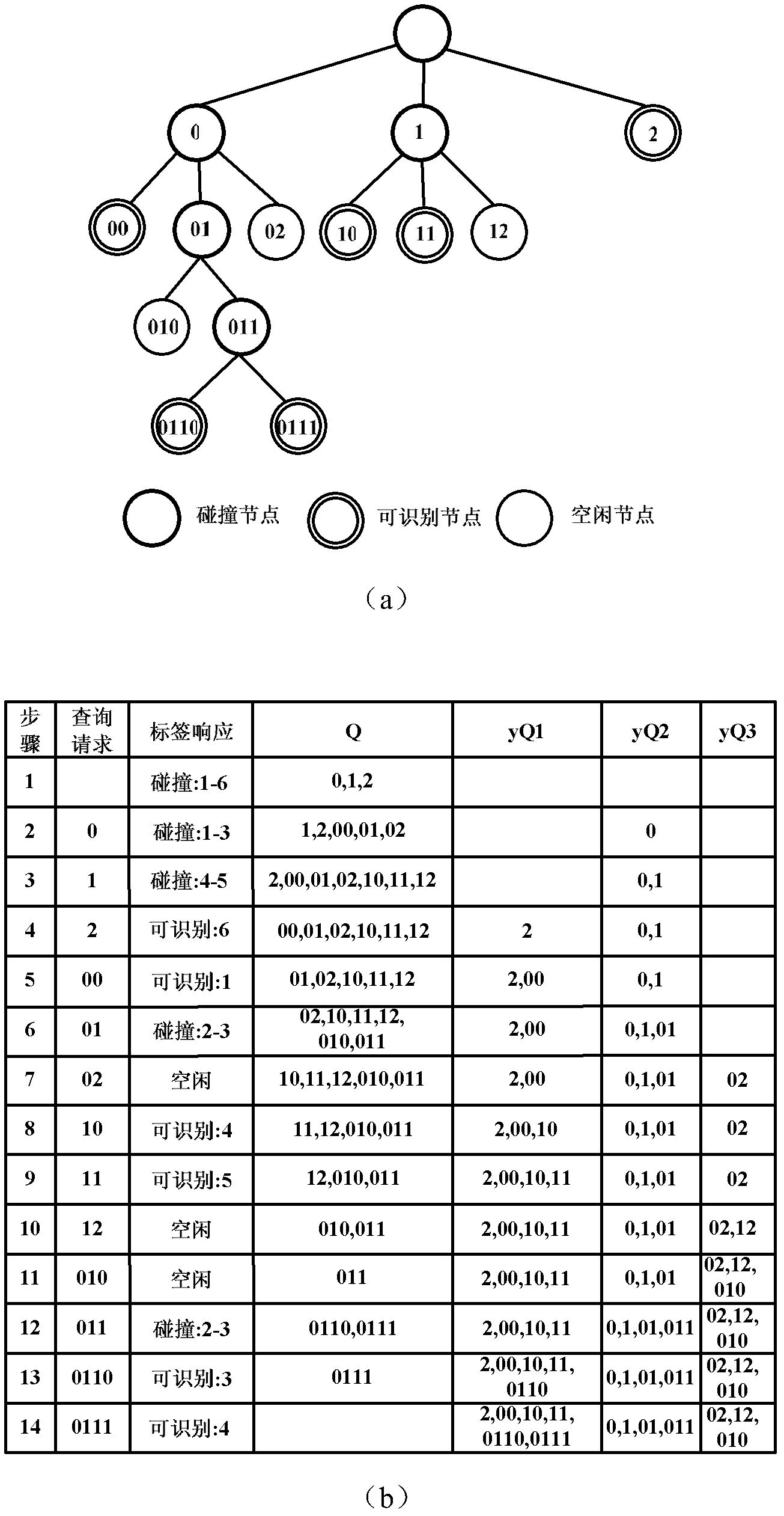Tag anti-collision method based on self-adaptive hybrid query tree in RFID (radio frequency identification) system
An anti-collision, query tree technology, applied to inductive record carriers, special data processing applications, instruments, etc., can solve the problem of inability to solve the problem of conversion to ternary, not considering the problem of label movement, difficult tree structure and other problems, Achieve the effect of reducing the number of queries, reducing the idle process and collision process, and reducing the label response delay
- Summary
- Abstract
- Description
- Claims
- Application Information
AI Technical Summary
Problems solved by technology
Method used
Image
Examples
example 1
[0060] Select Tag's EPC 2 The code is (000000), (001010), (001110), (011000), (100111) and (110111), and convert from binary to ternary to get EPC 3 The codes are (0000), (0102), (0120), (1000), (1121) and (2021). The initial query request in the queue Q is {0, 1, 2}, and the query request '0' is sent to all tags. Assuming that the 6 tags are within the communication range of the reader, at this time, tags 1, 2, and 3 respond, and the '0' goes to yQ 2 , and append {0, 1, 2} after '0' to form a new query request and add it to Q. At this time, the query request in Q is {1, 2, 00, 01, 02}, and then continue to query. Send query request '1', at this time Tag4, 5 respond, then attribute '1' to yQ 2 , and append {0, 1, 2} after ‘1’ to form a new query request and add it to Q,
[0061] At this time, the query request in Q is {2, 00, 01, 02, 10, 11, 12}, and then continue to query. Send a query request '2', and only Tag6 responds at this time, then attribute '2' to yQ 1 , delete...
example 2
[0067] Select Tag's (EPC) 2 The codes are (00000), (00110), (00111), (01100), (10011) and (11001), and the integer multiples of 3 are converted to ternary, and the rest remains unchanged, and the corresponding codeword is ( 00 00), (01 10), (01 11), (10 00), (11 11) and (20 01). For the remaining part, the binary query tree processing method is only different when the query request is reconstructed. For example, when processing the '01' request, it is found to be a collision process, add the {010, 011} query request sequence to Q, and identify '010' as an idle process and add yQ 3 , and ‘011’ is the collision process, continue to add the {0110, 0111} query request sequence to Q, both requests are identifiable processes, add yQ 1 middle. image 3 (a) is the tree recognition process of example 2, image 3 (b) is the query result of example 2.
[0068] 4. Set the adaptive method in the hybrid query tree
[0069] (1) Tag adding mechanism: new tags are only identified in the ...
example 3
[0077] like Figure 4 As shown in Figure (a), in the child nodes '00, 01, 02' of the '0' node, it can be found that '00, 01' is an idle node, and '00' is an identifiable node, which is consistent with (a) Therefore, the parent node '0' is considered to be an identifiable node, and the query request for the child nodes '00, 01, 02' is canceled. (b) In the figure, the child nodes '00, 01, 02' of the node '0' are all idle nodes, which conform to point (b), so the parent node '0' is considered to be an idle node, and the child node is cancelled. 00, 01, 02' query request. (c) Figure, in the child nodes '010, 011' of the node '01', it can be found that '010' is an idle node, and '011' is an identifiable node, which conforms to point (c), so it is considered that its father' Node 01' is an identifiable node, and the query request for child nodes '010, 011' is cancelled. (d) In the figure, the child nodes '010 and 011' of the node '01' are all idle nodes, and its parent node '01' ...
PUM
 Login to View More
Login to View More Abstract
Description
Claims
Application Information
 Login to View More
Login to View More - R&D
- Intellectual Property
- Life Sciences
- Materials
- Tech Scout
- Unparalleled Data Quality
- Higher Quality Content
- 60% Fewer Hallucinations
Browse by: Latest US Patents, China's latest patents, Technical Efficacy Thesaurus, Application Domain, Technology Topic, Popular Technical Reports.
© 2025 PatSnap. All rights reserved.Legal|Privacy policy|Modern Slavery Act Transparency Statement|Sitemap|About US| Contact US: help@patsnap.com



